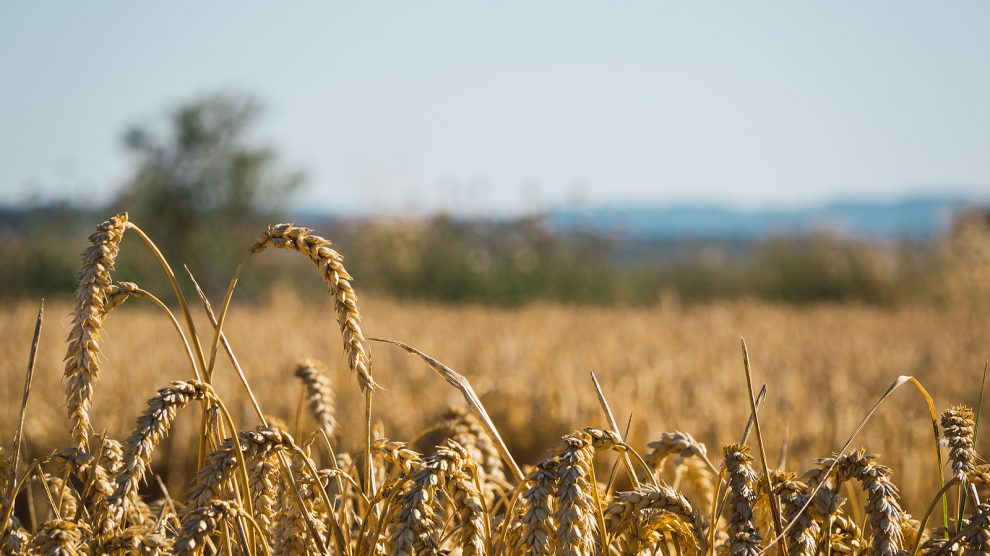In this time of uncertainty marked by climate change and disruptive human-caused events, we need new approaches to address crucial issues like food security.
Last year, the war in Ukraine, along with supply chain disruptions, caused food prices to soar and triggered a global crisis driving millions more people into extreme poverty. In the wake of this crisis, it’s critical to transform our food systems to become more climate-resilient and climate-smart while addressing current vulnerabilities and managing longer-term priorities.
- Addressing the food crisis: Work with nature, not against it
- How do we keep emerging Europe well fed, sustainably?
- Eastern European growth weaker, but resilient
In early 2023, the global agriculture commodities situation has stabilised, but food prices remain substantially higher than before Russia’s invasion of Ukraine. Like much of the rest of the world, the Europe and Central Asia (ECA) region has seen substantial food price inflation.
The region is home to some of the world’s largest grain and oilseeds net exporters such as Russia, Kazakhstan, Serbia, and Ukraine, while countries in Central Asia and the Western Balkans are net importers. But domestic food price inflation has been high for both the exporters and importers of the region, triggered by the transmission of high international prices into domestic markets, as well as the effects of climate change and domestic public policies.
Food insecurity is a significant concern across ECA, especially in Central Asia. The World Bank’s Listening to Central Asia rapid surveys in 2021 and 2022 revealed that food security was the biggest concern compared to other measures of poverty. For countries such as Kyrgyzstan and Tajikistan with relatively high levels of undernourishment and dependency on food imports, any reduction in food supplies poses a significant threat to food security. This is why, in Tajikistan, for example, the World Bank recently approved additional financing to strengthen the resilience of the agriculture sector and to buttress nutrition initiatives.
The food crisis, along with currency depreciations, growing debt, tightening interest rates, and the prospects of a global recession, could worsen global food stability, with negative spillover effects on the ECA countries. To help address these challenges, the World Bank is working with countries in the region with a focus around four pillars: (i) supporting production and producers; (ii) facilitating increased trade in food and inputs; (iii) supporting vulnerable households; and (iv) investing in sustainable food and nutrition security, such as we’ve done in Tajikistan.
Trade restrictions
The global food crisis has been partially made worse by the growing number of food trade restrictions put in place by countries around the world with a goal of increasing domestic supply and reducing prices.
In ECA, the Bank aims to support increased trade as an important response to food insecurity. Currently, trade restrictions are more pronounced in ECA than in other regions of the world. These restrictions have amplified food supply distortions driven by the economic fallout of the Covid-19 pandemic and the war in Ukraine. Such measures are not only detrimental to longer-term investments in agriculture but also hamper regional collaboration that could benefit many ECA countries, given existing substantial intra-regional trade flows, as well potential for further growth.
Support for food production and producers will be also critical. Trade disruptions in grain, oilseeds, and sugar, as well as high food and agricultural input prices, have worsened food security in ECA. Farmers face higher production and transportation costs and difficulties procuring production inputs such as seeds and fertiliser. Remittances also have declined for a number of countries where rural people are particularly dependent on them. These effects put at risk the benefits the agriculture sector provides in many ECA countries: economic relevance, food security, job creation, and the main source of rural livelihoods.

Impact of the war in Ukraine
The ECA region is also home to war-torn Ukraine, which historically plays a crucial role in global grain and oilseed markets. In 2022, Ukraine saw a substantial decline in production volumes and further declines are expected for 2023. As a result of the war, high costs for farming inputs, storage and transport; farm gate prices have sunk below production costs at times. There is also a lack of liquidity for farmers and farm businesses to invest in the next planting season.
Pressure on Ukraine’s grain and oilseed farmgate prices has come not only from lower export revenues and increased marketing costs, but also from a storage capacity deficit and increased storage costs. The World Bank is looking into how to further support Ukraine to address such constraints as well as market failures to urgently recover agricultural production needs in the short term, while creating a foundation for a more sustainable restructuring of the sector and building back better.
The current food crisis offers a momentum for us to rethink and repurpose our agriculture policies. By getting them right, we can make them more effective to tackle the currently changing global and regional environment as well as guiding towards a more resilient pathway.
This article was co-authored by Sergiy Zorya, lead agriculture economist sustainable development for Europe and Central Asia, World Bank, and first published in Emerging Europe’s Future of Food report, produced in partnership with Żabka Group. You can download the full report, for free, here.
Unlike many news and information platforms, Emerging Europe is free to read, and always will be. There is no paywall here. We are independent, not affiliated with nor representing any political party or business organisation. We want the very best for emerging Europe, nothing more, nothing less. Your support will help us continue to spread the word about this amazing region.
You can contribute here. Thank you.


